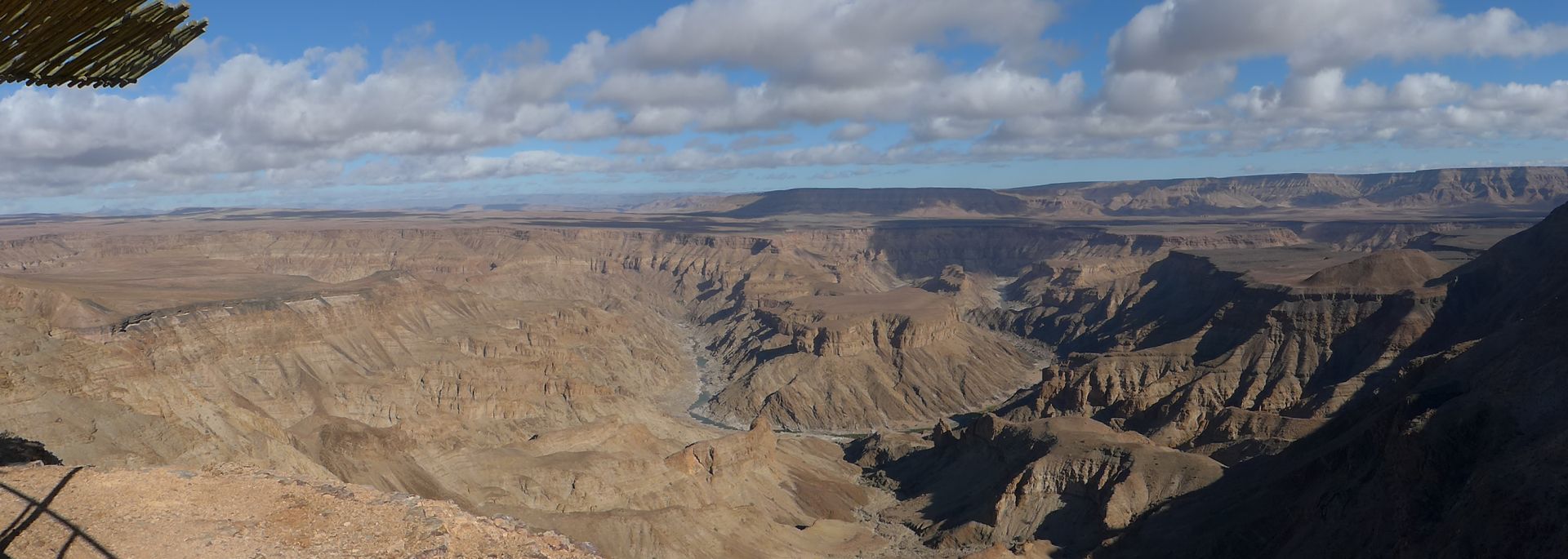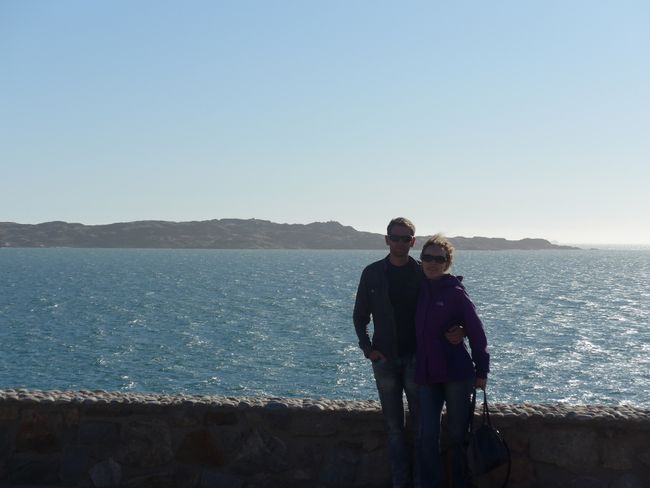
peters-on-tour
vakantio.de/peters-on-tour
Sukhothai (Thailand Part 8)
Wɔatintim: 15.03.2019
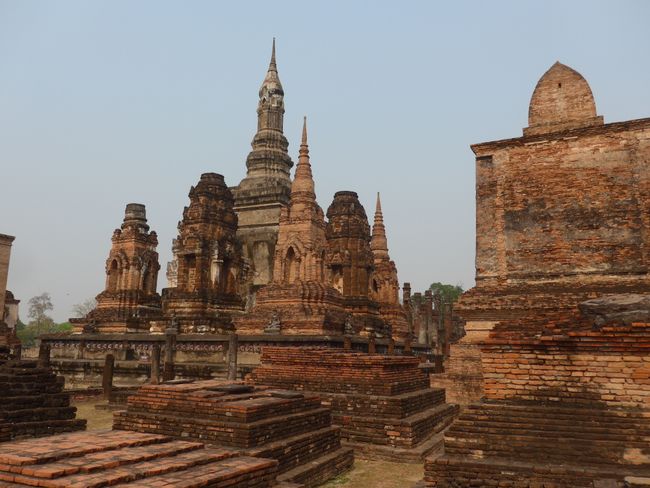
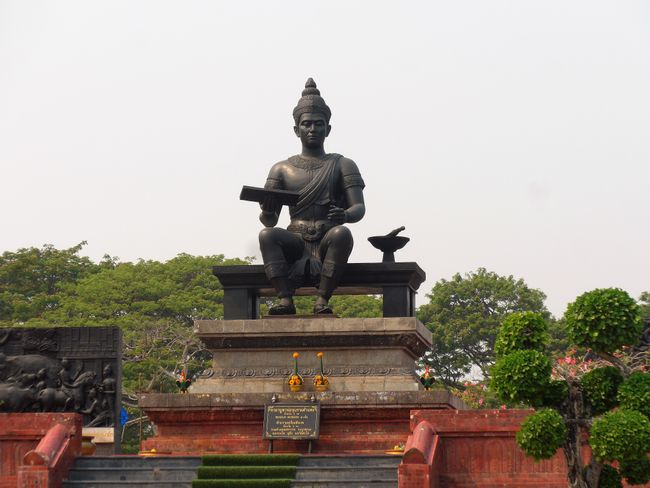
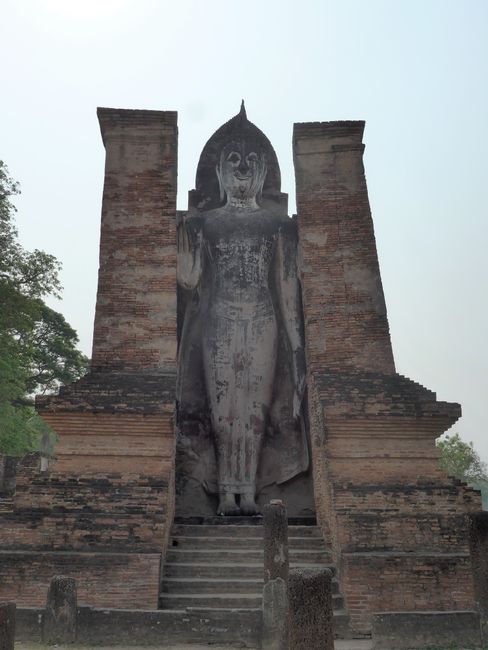
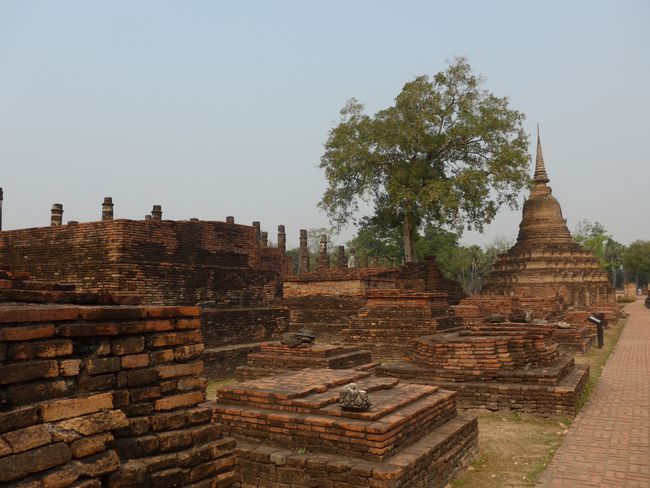
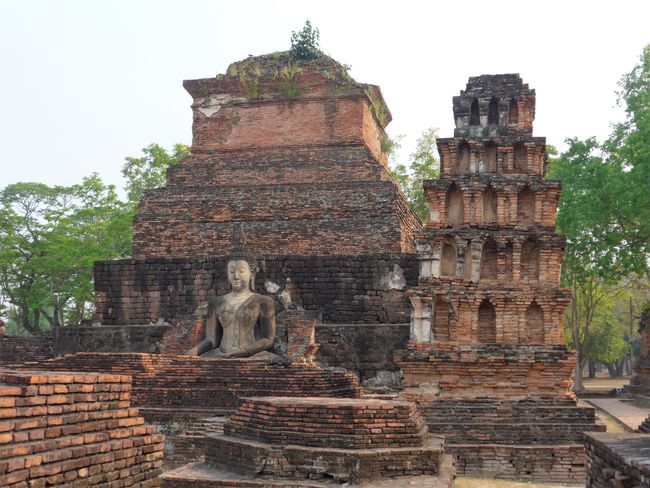
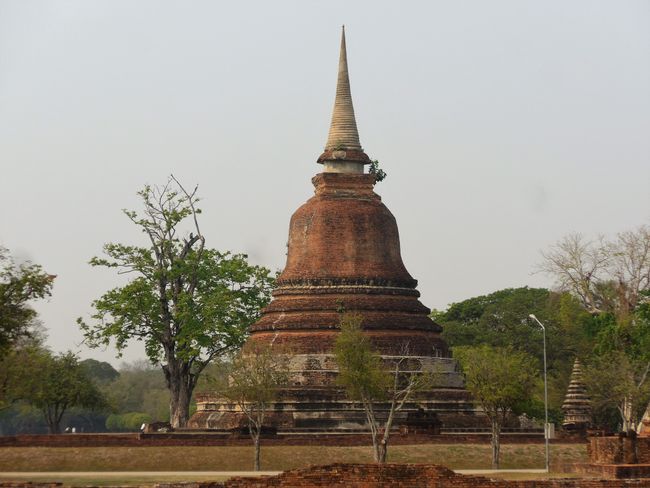
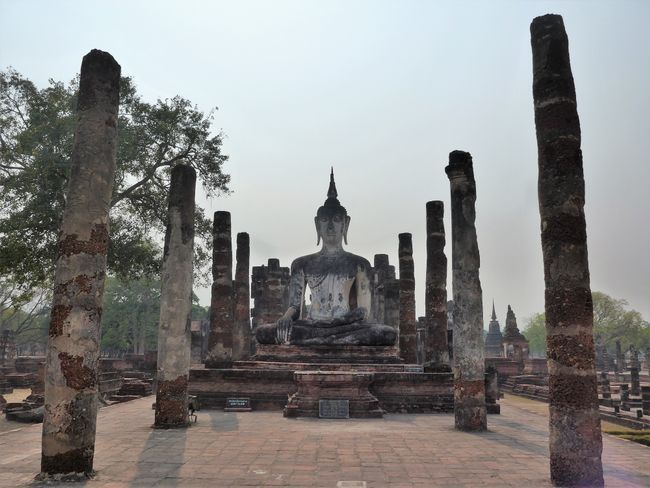
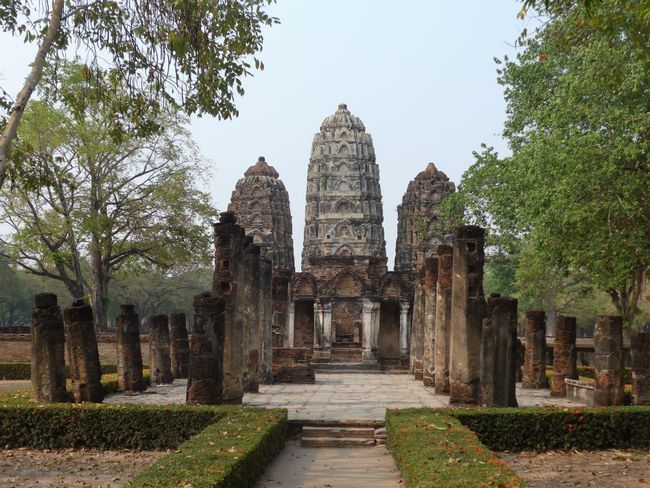
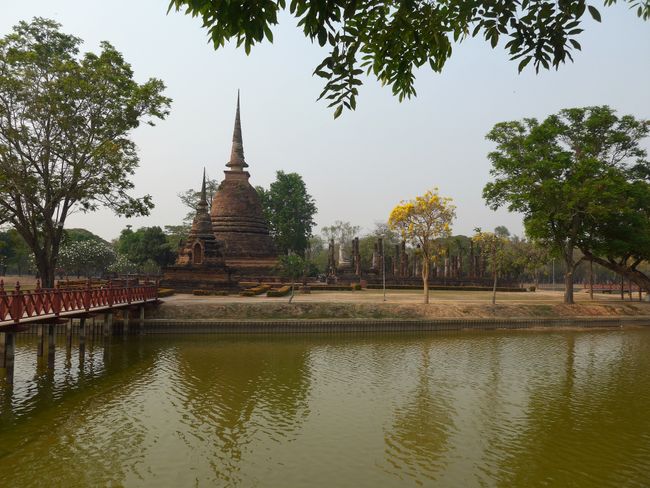
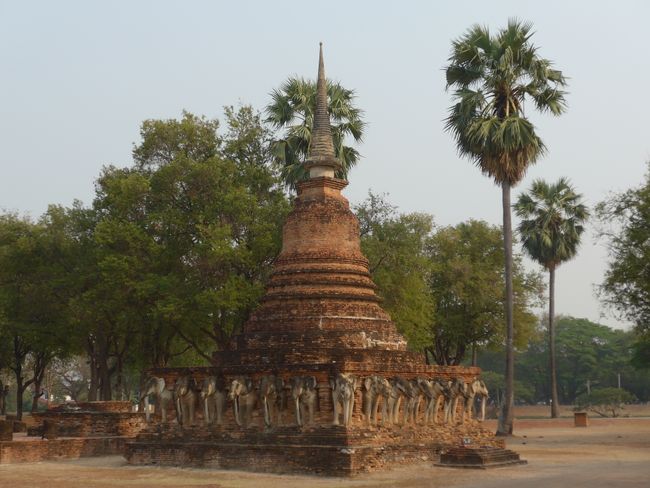
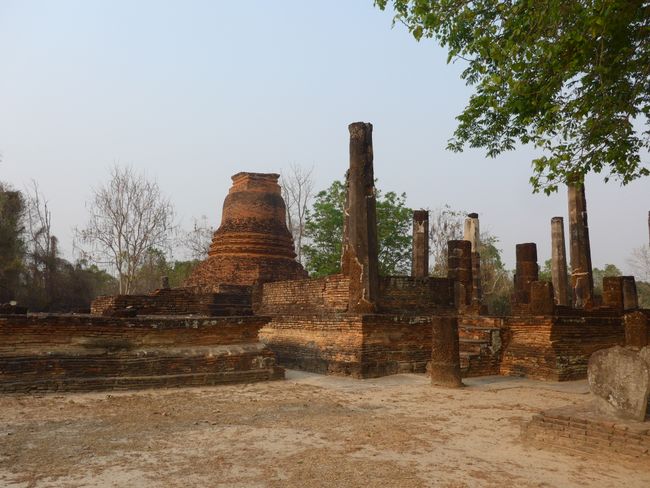
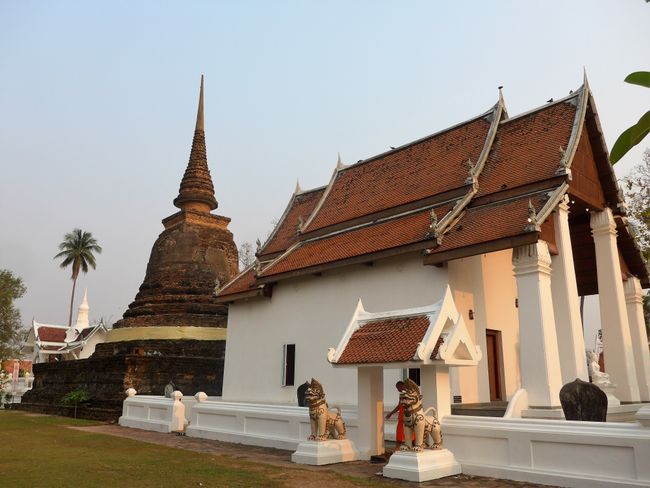
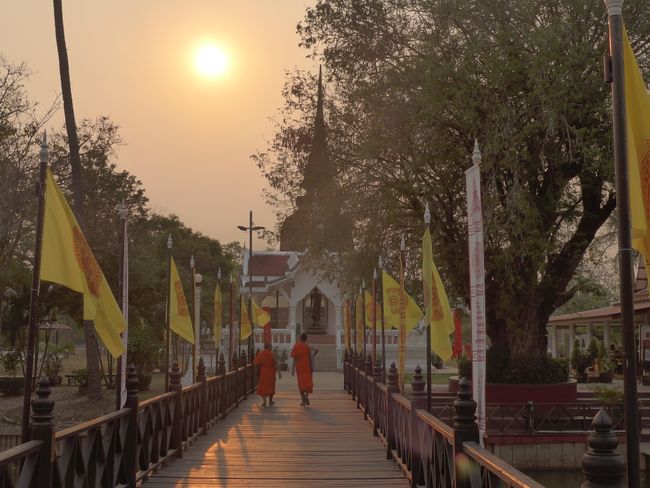
Kyerɛw wo din wɔ Newsletter no mu
Sukhothai became the capital of the first major Thai kingdom in 1238. It lost its importance when Ayutthaya, which we have already visited, rose to become the new center in the 16th century.
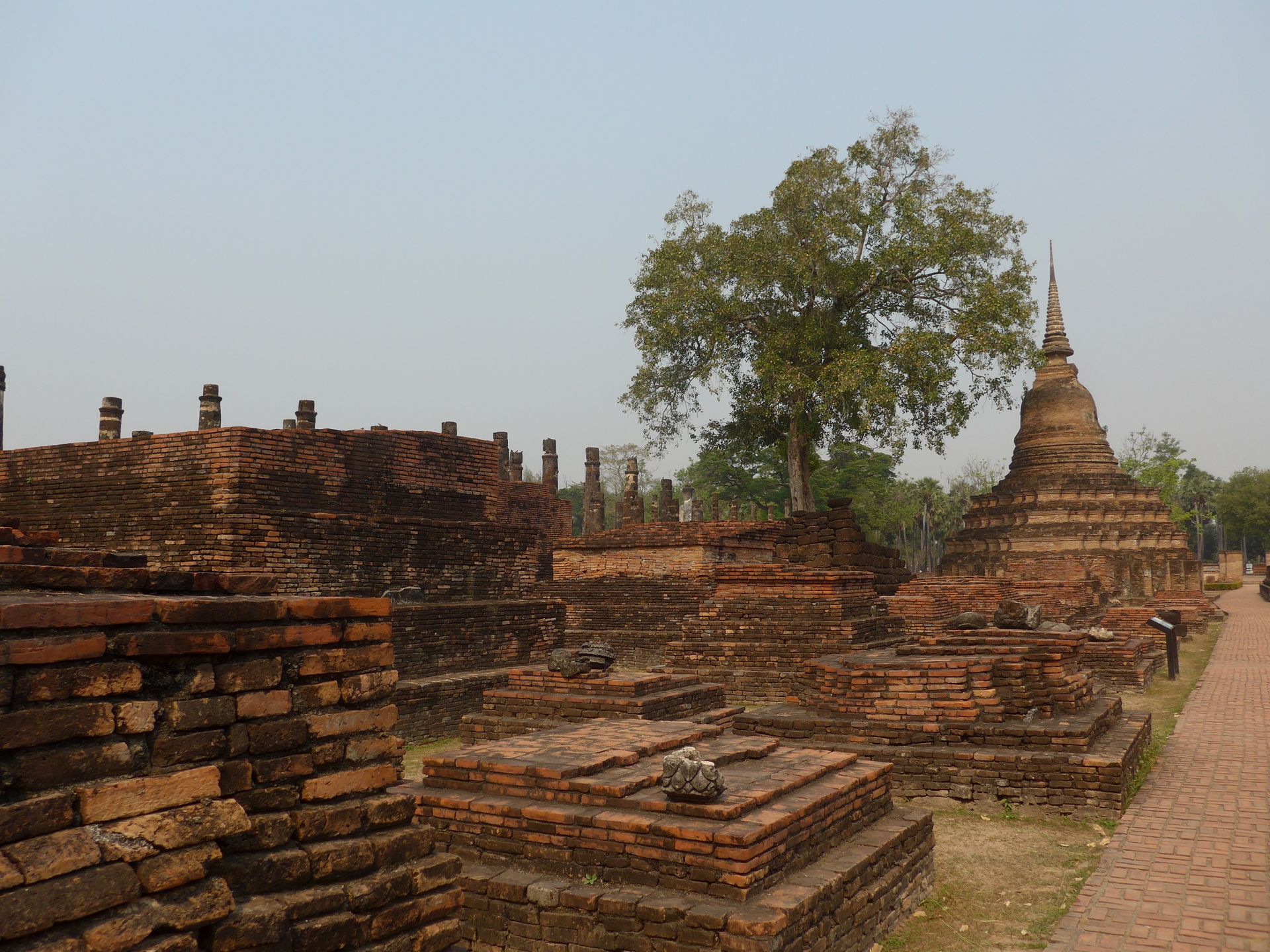
Sukhothai fell into decay, but with the support of UNESCO, it was restored. The temples in the central area in particular have been well restored and connected in a beautiful complex.
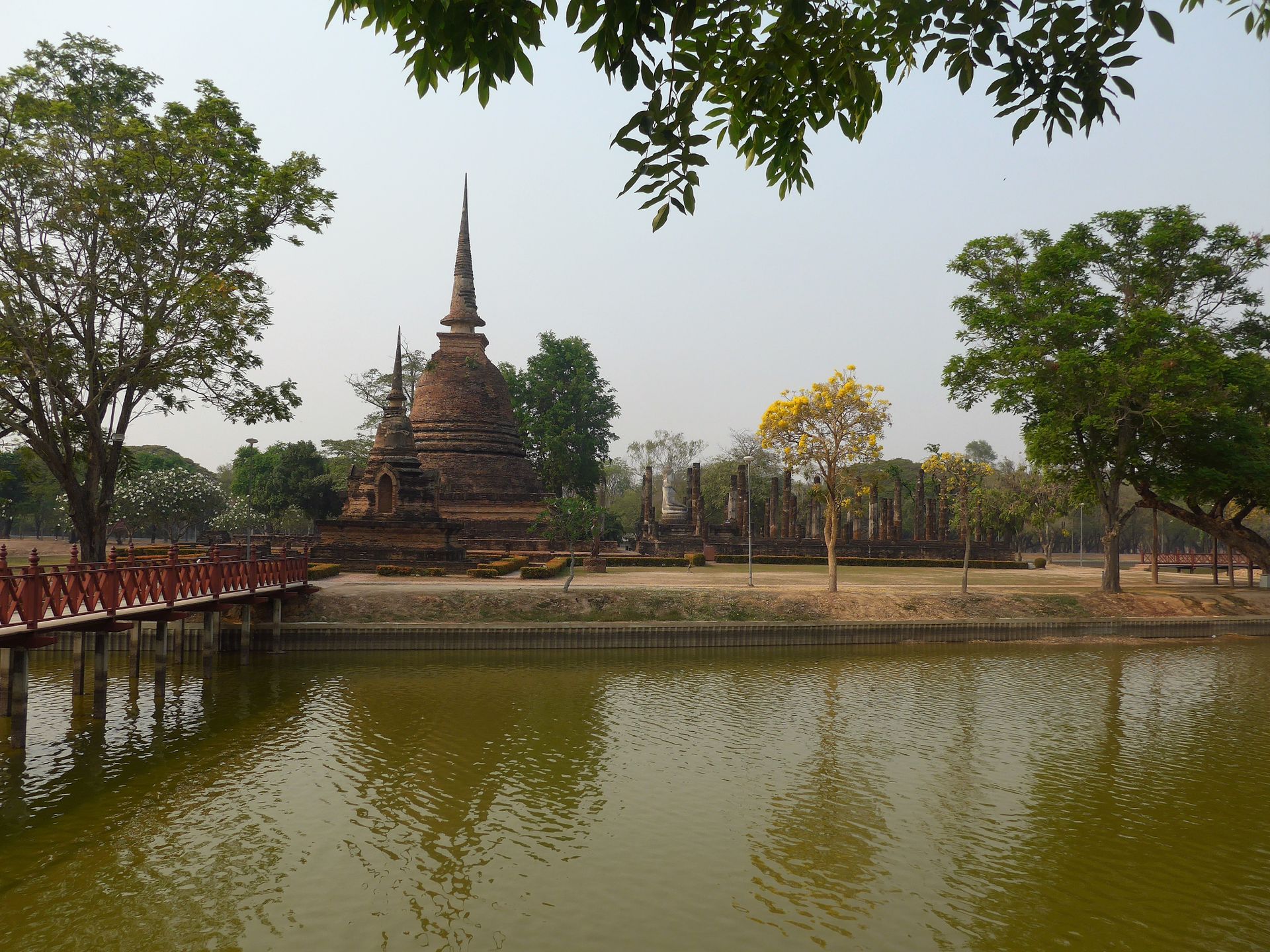
We rented bicycles at the hotel, which is ideal for exploring the central area as cars are not allowed here. This allowed us to leisurely cycle from temple to temple.
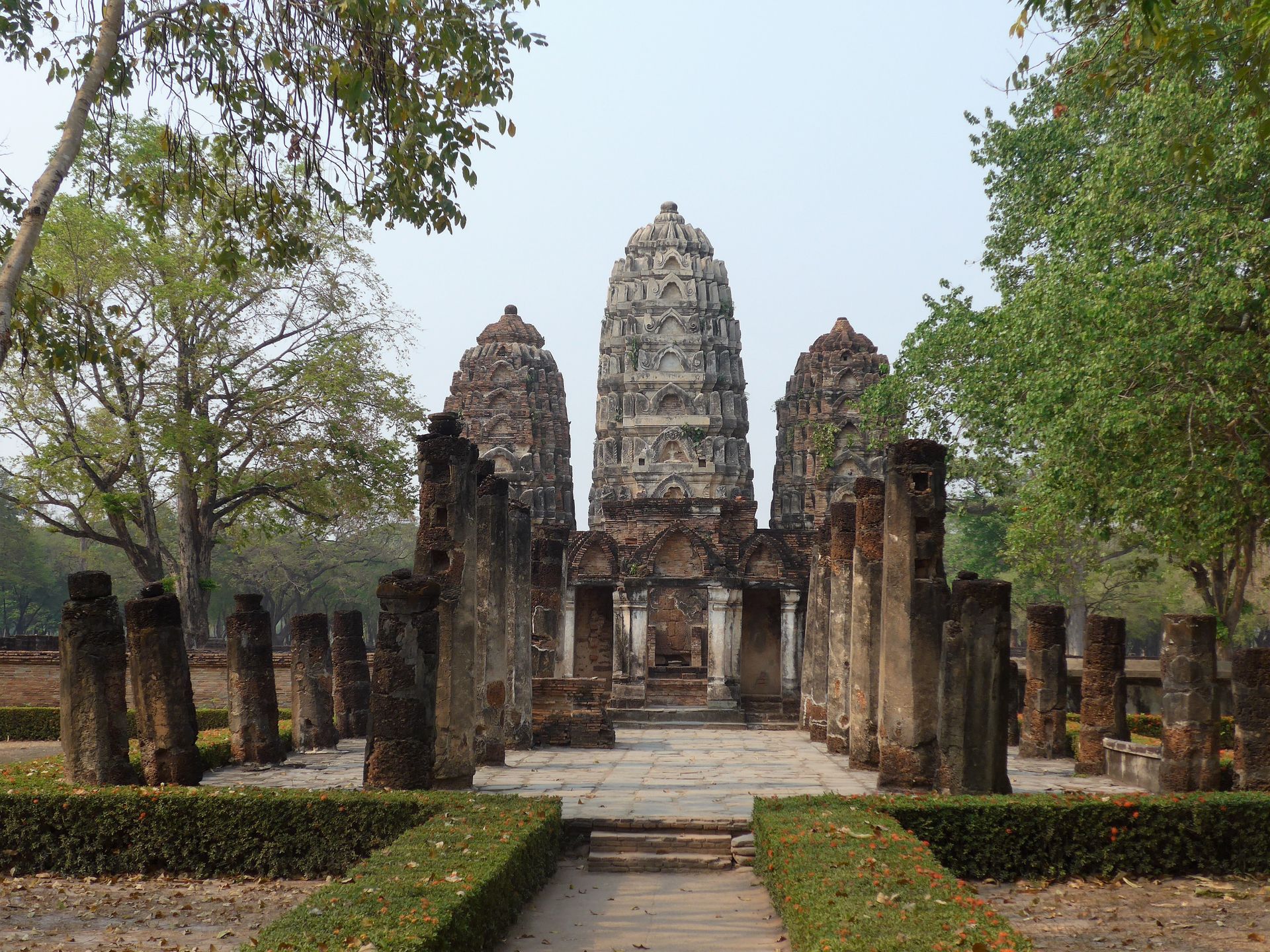
In the center of the city is the largest and most important temple: Wat Mahathat
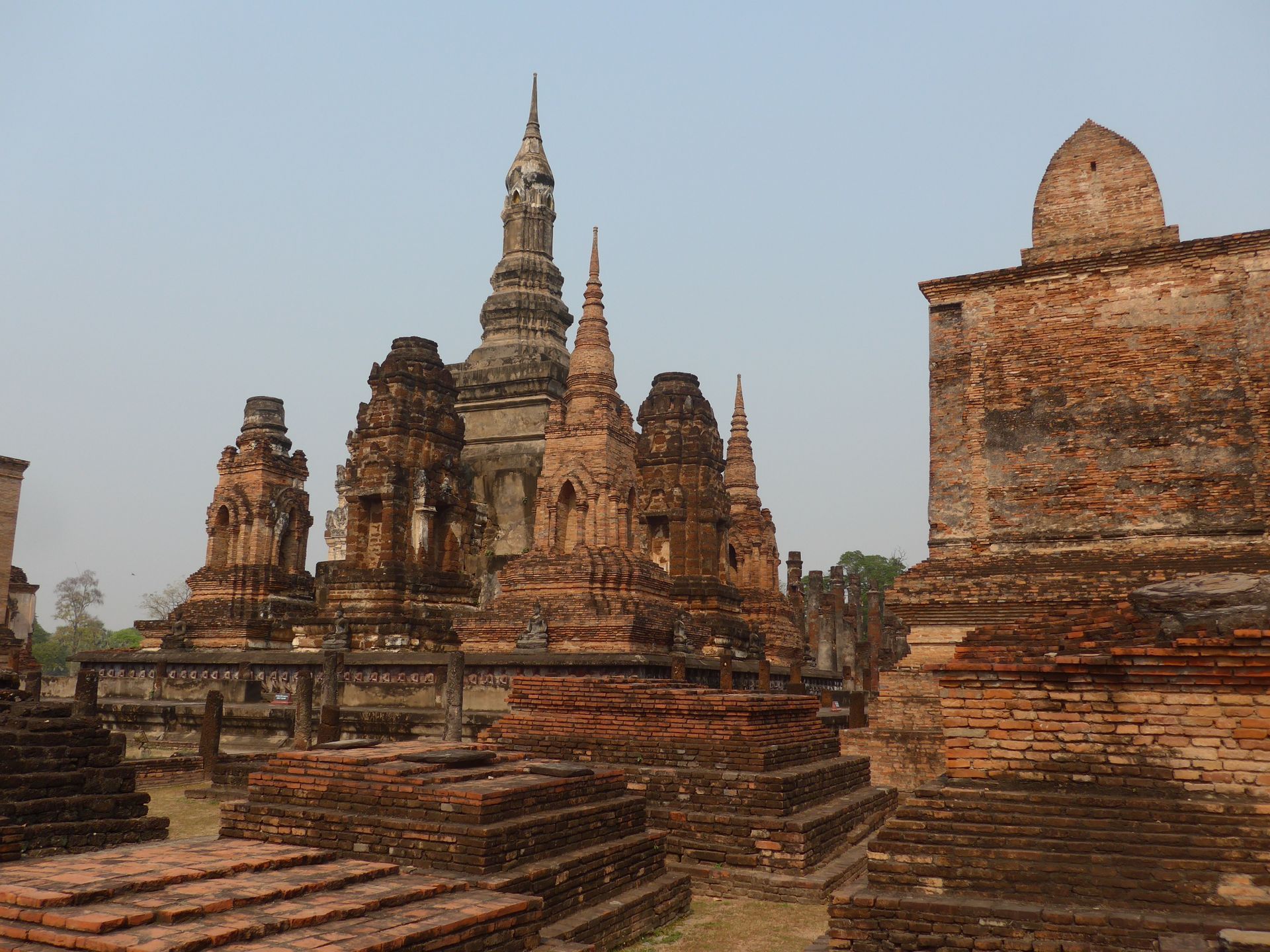
Some large Buddha figures were still present in the temple ruins, as well as some chedis (stupas) and remains of a columned hall.
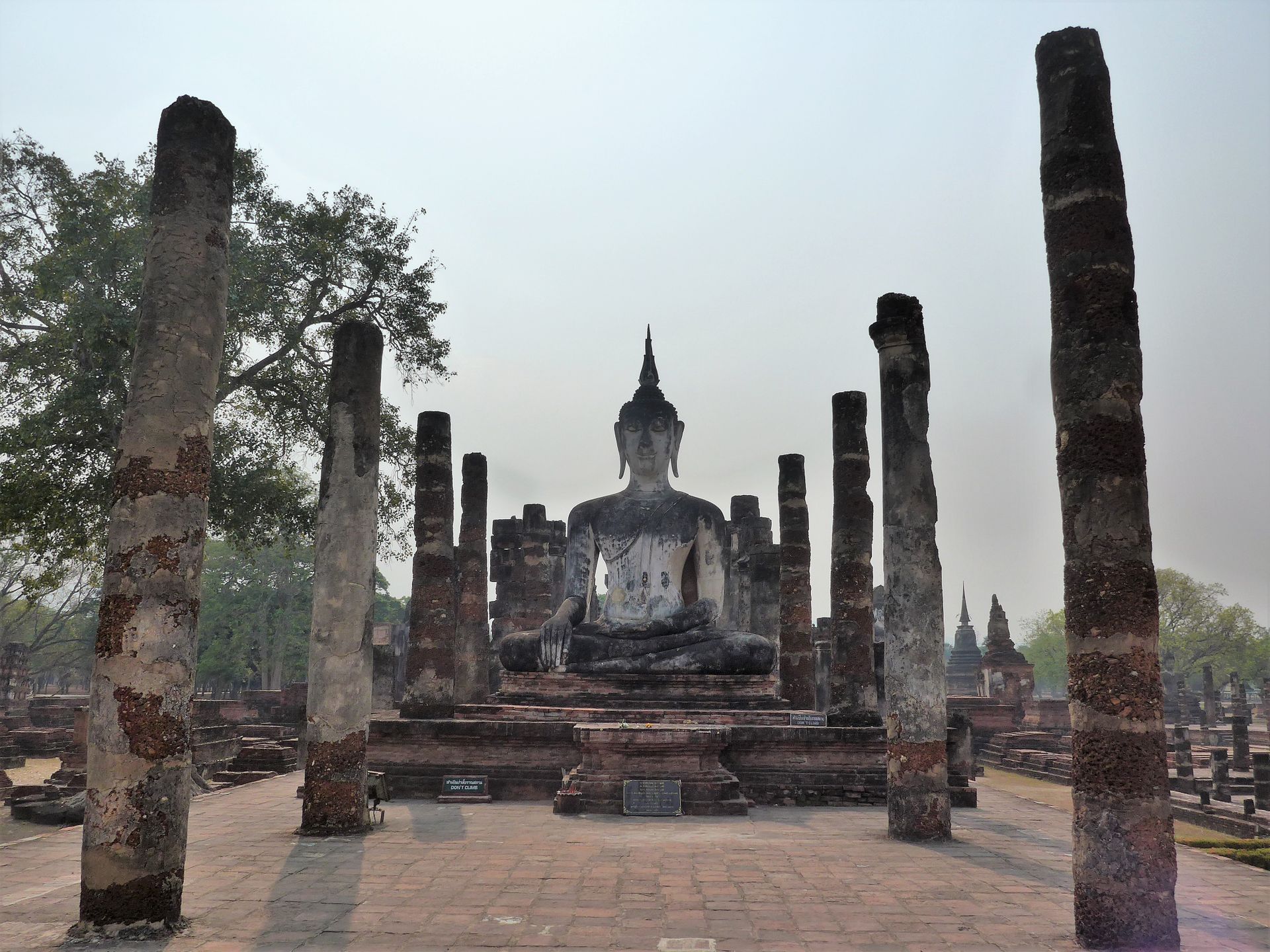
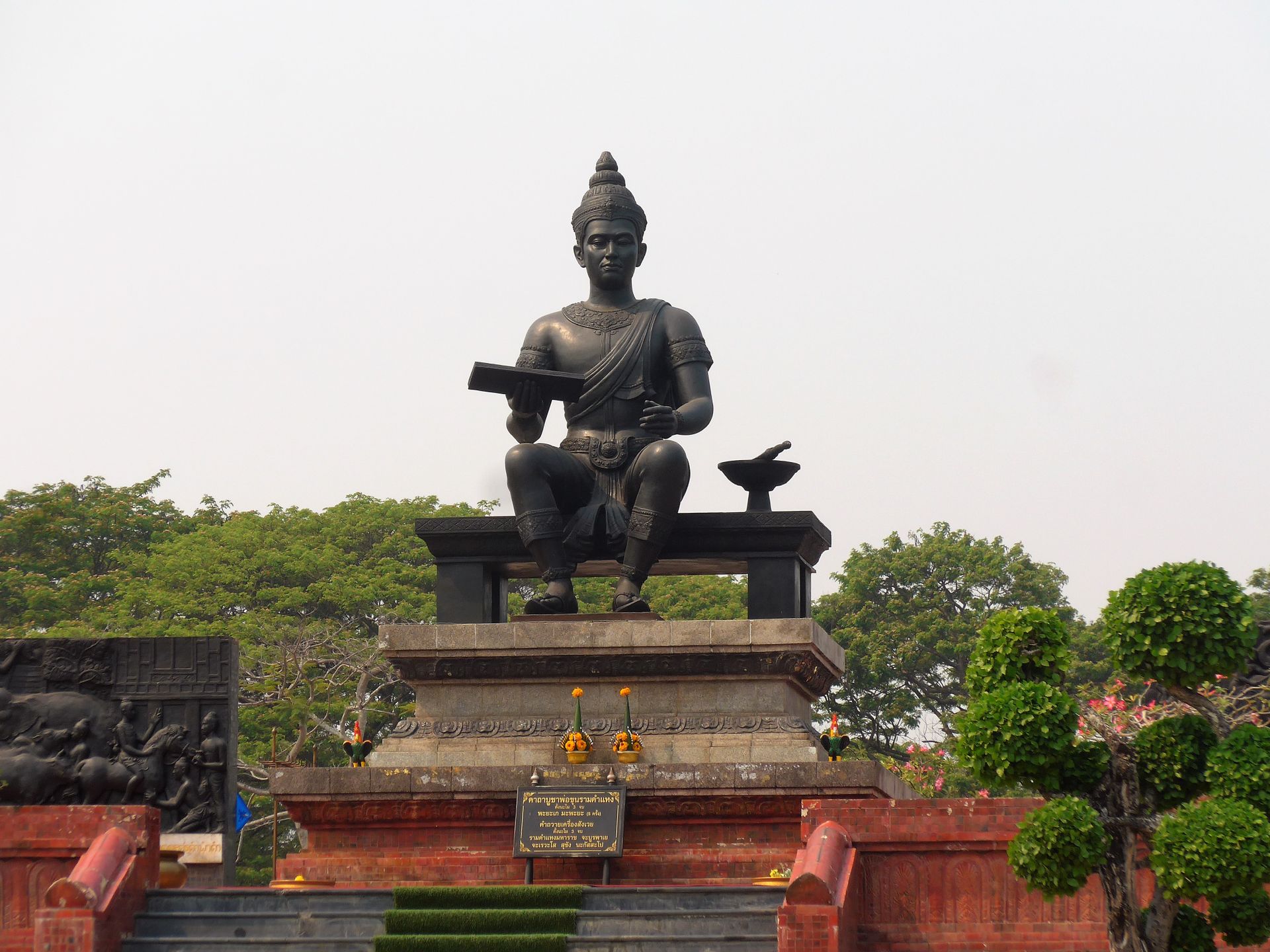
He also developed the first Thai alphabet, from which the current script emerged. Unfortunately, the letters look too similar to us, so we have to rely on an English text - or hope that this sign is not so important. We also struggle with the spoken language - we can only say more than a (probably not well pronounced) "Hello" and "Thank you".
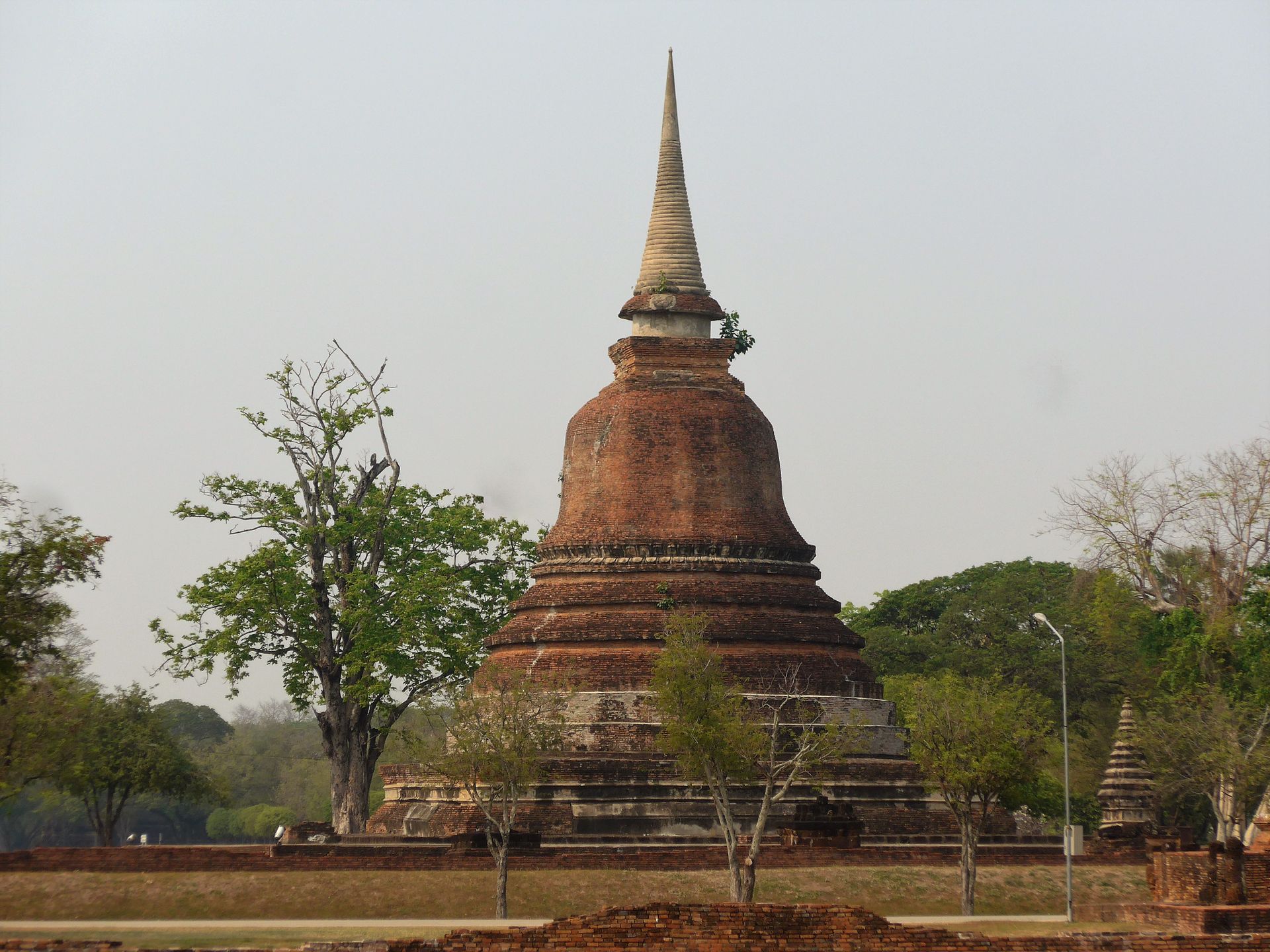
Our tour of Sukhothai took us further into the northern and western parts, where the sites were not as well preserved.
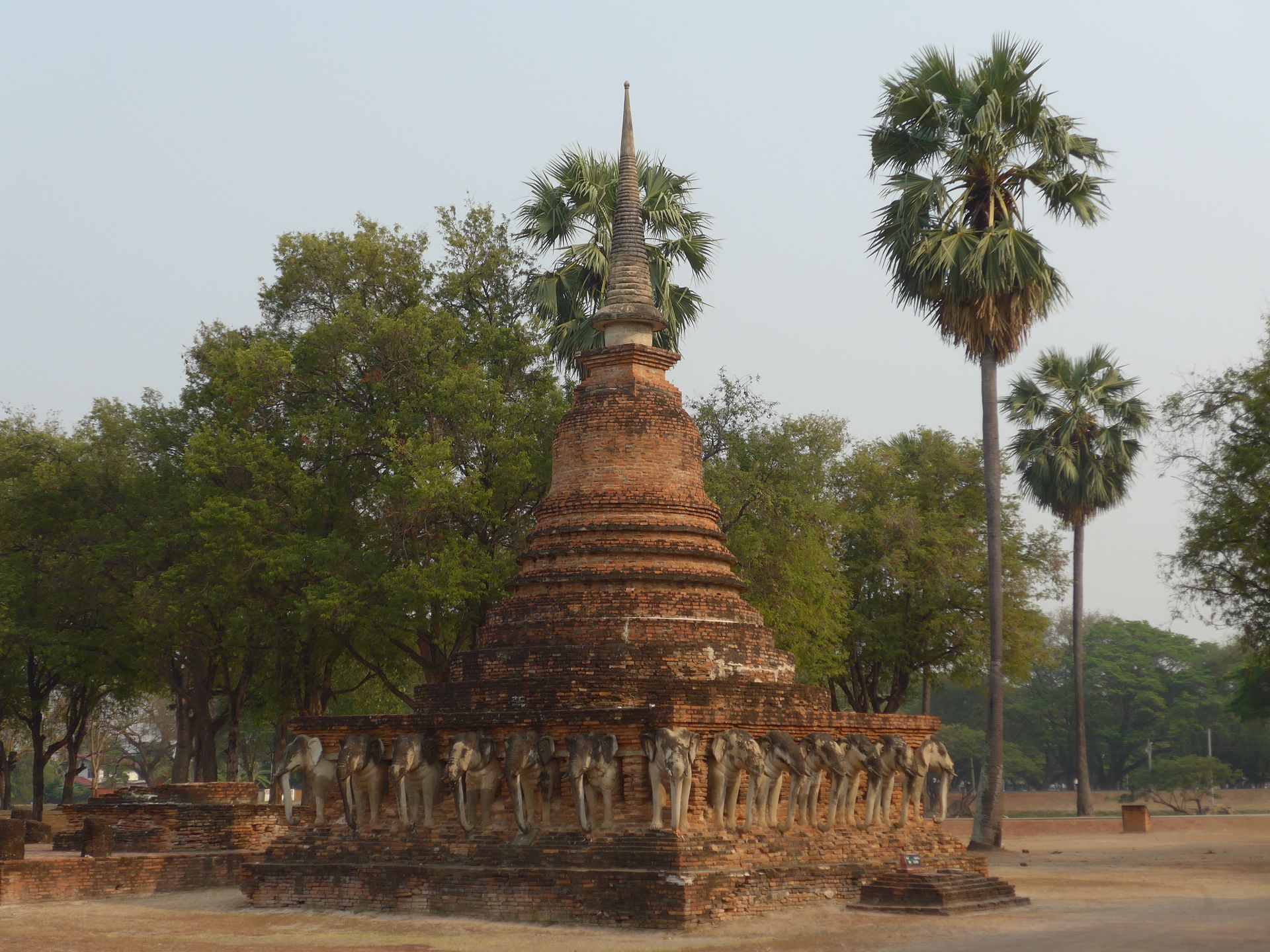
Furthermore, the temples in the western district were located on hills, so we decided to observe them from passing by.
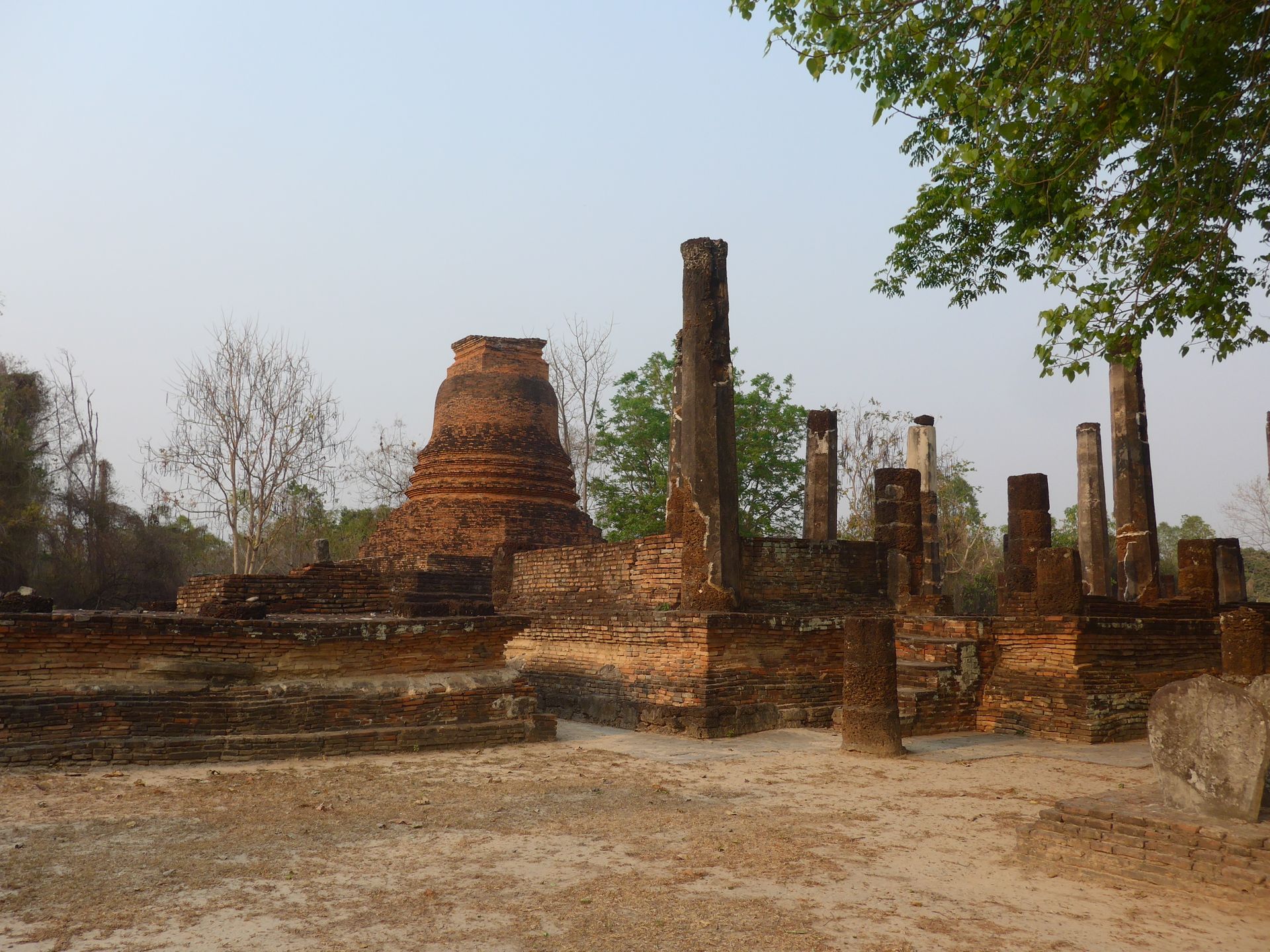
Finally, we visited Wat Tra Phang Thong on our way back to the hotel. The temple is surrounded by water and can be reached via a small bridge.

Wat Tra Phang Thong
In the evening, monks and some children were entering the temple, so we limited our visit to the exterior.
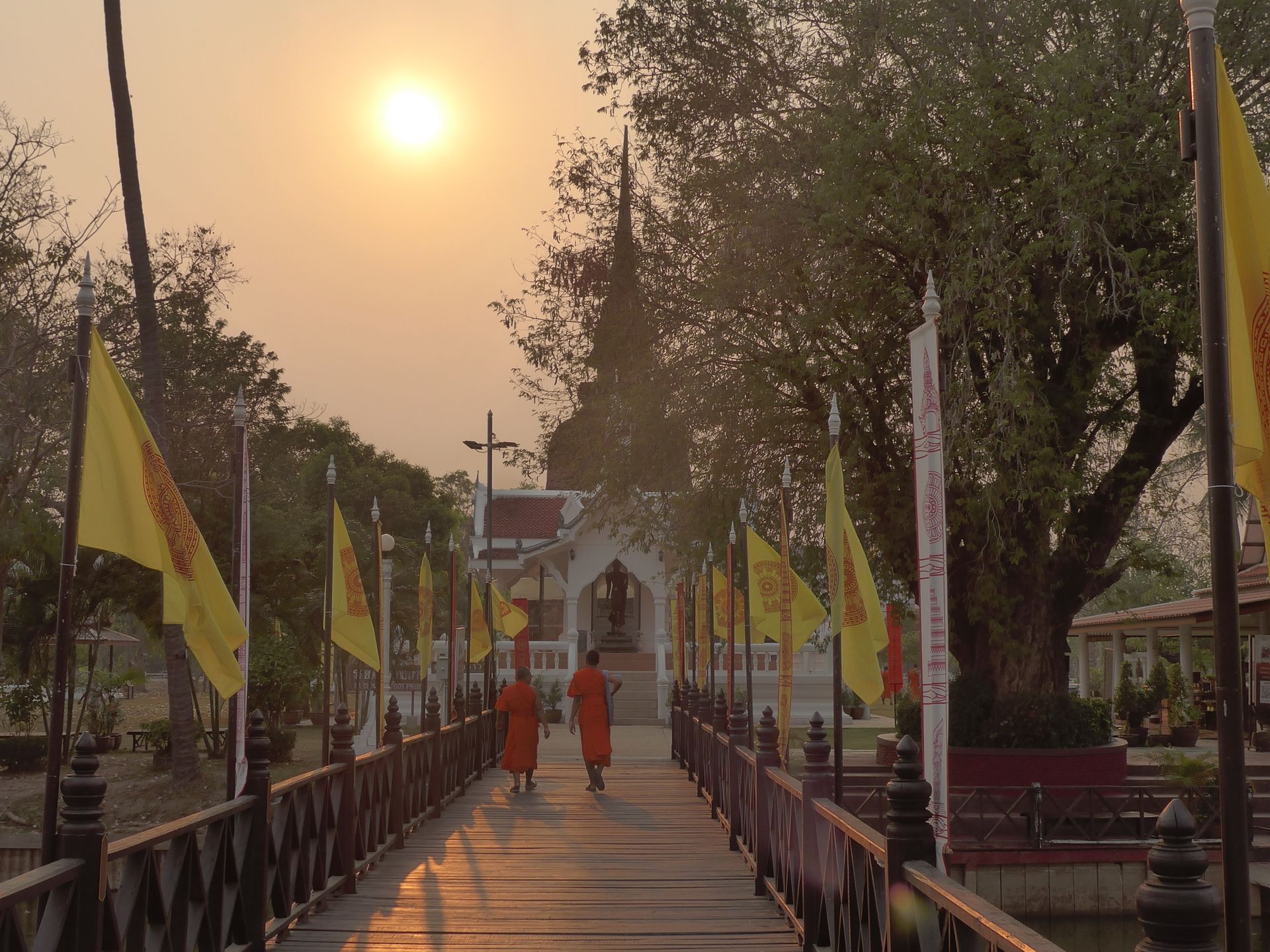
In the evening at the hotel, I treated myself to a Thai massage for relaxation after cycling 15 kilometers in Sukhothai at 37°C.
Kyerɛw wo din wɔ Newsletter no mu
Anoyie
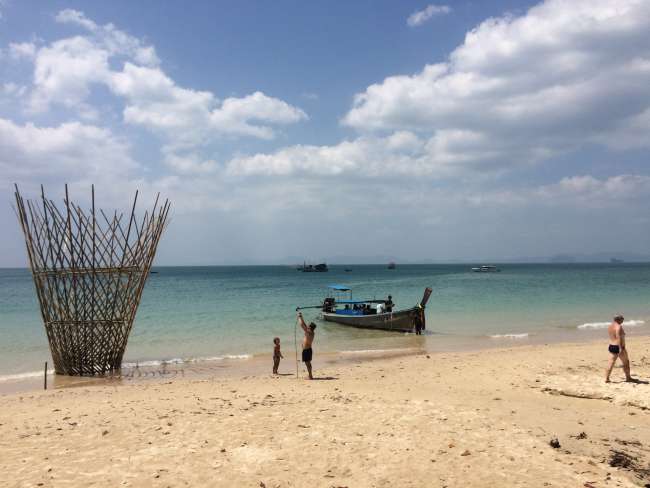
Akwantuo ho amanneɛbɔ Thailand
